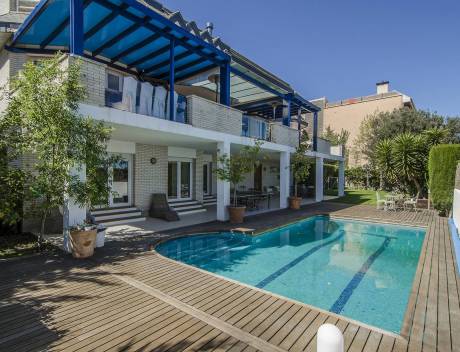
The Urban Leasing Law (LAU) establishes two types of leases, those for housing and those for use other than housing. The seasonal contract is included in the second category and, therefore, is governed by legislation other than a normal rental contract. In this article we will explain the main differences between these two types of contract.
The use of housing
Although it seems evident that the main difference between these two contracts is the duration of the same, the LAU separates them by the use that is given to housing in each case. While in the rental of housing the property represents the habitual home of the tenant, in the seasonal contract it is assumed that the tenant rents that property to live in it temporarily, having his own house in another place. This rules apply also for Luxury apartments Barcelona Spain rental.
The legislation
Another of the main differences is that the seasonal contract is not governed by any law, but by the clauses agreed by the tenant and the lessor in the lease. Therefore, the Urban Leasing Law does not establish any regulations regarding duration, extensions, updates, works, etc.
Bail
The point number 1 of article 36 of the LAU makes very clear the difference between the guarantee of one and another rental contract: “To the conclusion of the contract will be mandatory the requirement and provision of deposit in cash, in amount equivalent to a monthly payment of rent in the lease of houses and two in the lease for use other than housing. ”
As explained above, seasonal contracts are classified as for use other than housing, thus, the deposit required of the tenant will be two monthly installments. However, there are many examples in which it is not necessary to fulfill this premise, as for example in the case of tourist rentals.
Energy efficiency certificate
The Energy Efficiency Certificate is mandatory in any dwelling that has been rented with a date after June 1, 2013, including seasonal contracts. However, if the contract duration is less than four months, this certificate will not be mandatory.
Contract formalization
The vacation rental contract can be made verbally, although it is best to leave in writing all agreements reached by both owner and tenant. The law establishes that “the parties may reciprocally compel the formalization in writing of the lease contract.”, Without it being obligatory.
Author : Aparthotel Barcelona
